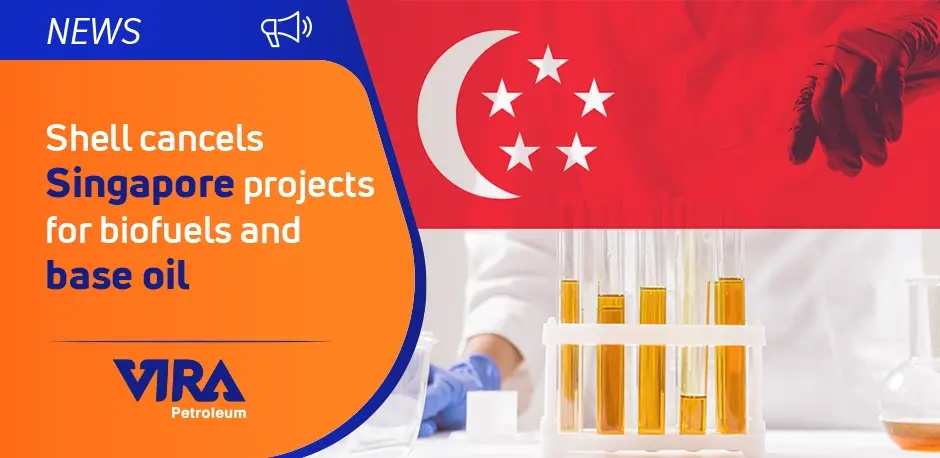Royal Dutch Shell has announced that it will not proceed with two projects in Singapore, one aimed at producing biofuels and the other at creating API Group II base oils. The company said that it will continue to supply biofuels and base oils to customers in the region.
Order :Recycled Base Oil
Shell’s planned 550,000 tonnes per year biofuels unit and API Group II base oil plant were both based on Singapore’s Bukom Island. The biofuels unit was expected to produce sustainable aviation fuel (SAF) to supply major Asian hubs such as Hong Kong International Airport and Singapore’s Changi, as well as renewable diesel and bionaphtha feedstock for petrochemicals. However, the company has now decided not to proceed with either project.
The decision not to pursue the biofuels project in Singapore comes after Shell announced in 2021 that it was building an 820,000 tpy biofuels plant in Rotterdam, the Netherlands, with the aim of producing around 2 million tpy of SAF by 2025. Aviation is one of the most challenging transportation sectors to decarbonise, and while Europe and the United States have introduced mandates for airlines to use SAF, there is no such regulation in Asia.
Shell’s decision to abandon the API Group II base oil plant in Singapore was first disclosed in February 2022. The fuels refinery on Pulau Bukom, just south of Singapore’s main island, was downsized in 2021 to reduce greenhouse gas emissions. The refinery still has a base oil plant with capacity to make 386,000 metric tons per year of Group I oils, and Shell said it will continue to supply base oils and lubricants to customers in the region.
Order :Base Oil SN 150
The company did not provide a reason for its decision to abandon the biofuels and base oils projects, and Reuters was unable to obtain comment from Shell officials. However, it is likely that Shell is focusing on other areas of growth and investment, as well as reassessing its environmental priorities.
Shell has been making significant efforts to reduce its carbon emissions and transition towards cleaner energy sources. The company recently set a target of becoming a net-zero energy business by 2050, with an interim target of reducing the carbon intensity of its products by 20% by 2030. Shell has also been investing in renewable energy projects such as wind and solar power, as well as hydrogen and biofuels.
While Shell’s decision not to proceed with the biofuels and base oils projects in Singapore is a setback for the company’s efforts to decarbonise the aviation and transportation sectors, it is likely that the company will continue to explore other opportunities in this space. As the world transitions towards a lower-carbon economy, there will be growing demand for cleaner energy sources, and Shell is well positioned to take advantage of this trend.

